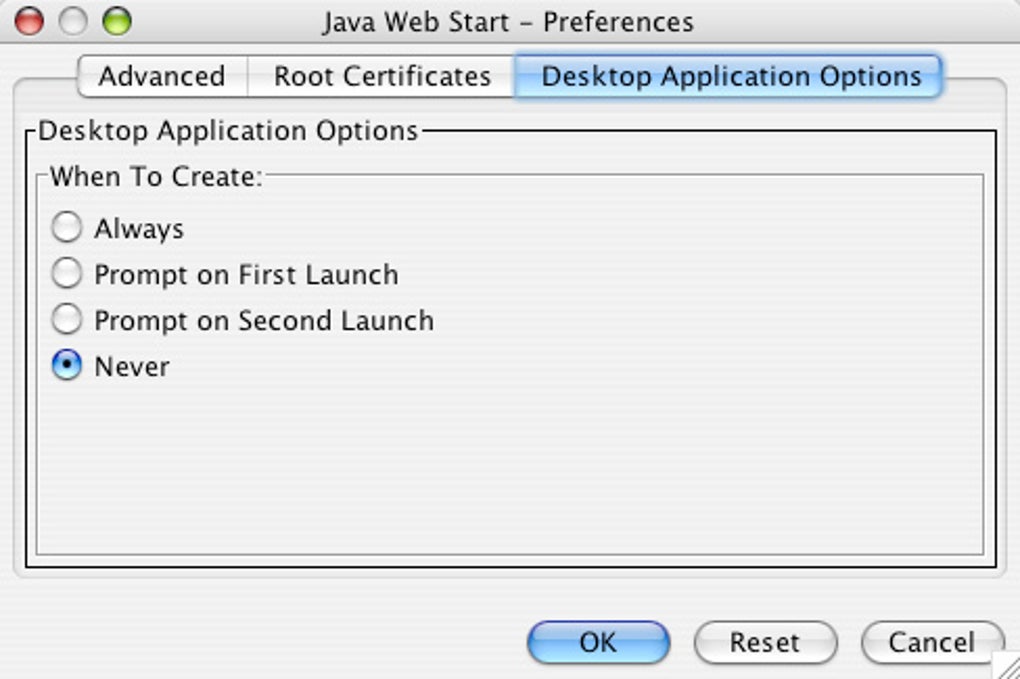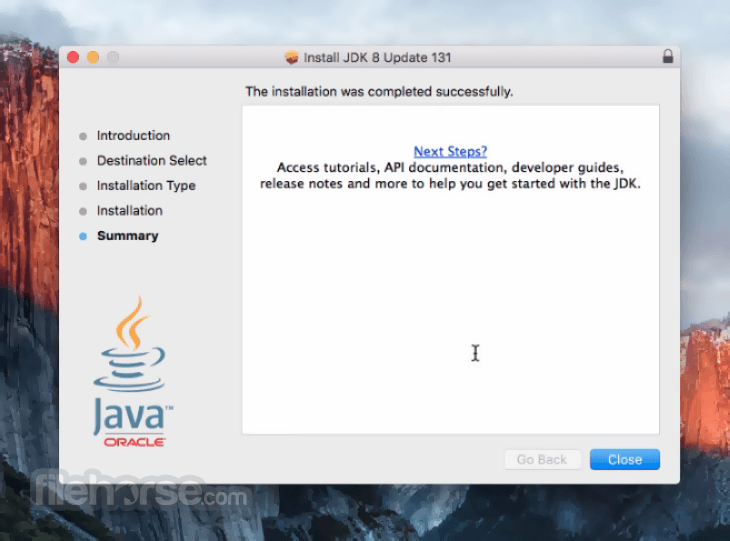Java Tools For Mac
Fix Java Command-Line Tool Pop-Up on Mac OS X Download Java for OS X 2017-001 aka Apple’s version of Legacy Java Command-line tool. Mount the.dmg disk image file and install Java 6 runtime for OS X. OR-Tools also provides binary distributions with FlatZinc support: FlatZinc—Mac OS X; Validate your installation. To test your Java installations, open a terminal window and navigate to the directory where you unpacked the binary distribution. Then enter the following command: make testjava. This runs a selection of examples for OR-Tools.
- Update Java Mac
- Java For Mac Pro
- Java For Mac Os
- Java Tools.jar Mac
- Java Utility For Mac
- Java Developer Tools For Mac
Introduction
This guide explains how to install OR-Tools for Java on MacOS.
Although these instructions might also work on other MacOS variants, we have only tested them on machines meeting the following requirements:
- MacOS 10.15.5 (Catalina) 64-bit (x86_64)
Update Java Mac
x86_64 (also known as amd64) architecture.Xcode Command Line Tools
You must install the Xcode Command Line Tools. To do so, open the Terminal, found in /Applications/Utilities/, and enter:
Click “Install” to download and install Xcode Command Line Tools. You don’t need to 'Get Xcode' from the App Store. If you have a slow Internet connection, it may take many minutes.
Verify that you’ve successfully installed Xcode Command Line Tools:
You should see:
Prerequisite: Java JDK
You must install the Java JDK 7.0 or higher. We recommend installing it using the 'missing package manager for macOS' aka Homebrew:
Once you have installed Homebrew, you can install Java JDK using:
Installing OR-Tools
Take the following steps to install the OR-Tools library for Java:
Download and extract the binary distribution for your system:
FlatZinc binary distributions
FlatZinc is a solver input language understood by a wide range of solvers.
OR-Tools also provides binary distributions with FlatZinc support:
Validate your installation
To test your Java installations, open a terminal window and navigate to the directory where you unpacked the binary distribution. Then enter the following command:
This runs a selection of examples for OR-Tools. If all the examples run successfully, you are ready to get started with OR-Tools.
This topic includes the following sections:
38 Games Like Battle for Middle Earth 2 for Mac. Lord of the Rings, The Battle for Middle-Earth II: The Rise of the Witch-King expands the universe Tolkien created. This expansion pack to the fan favorite game series lets you command the rise of evil in Middle-earth while experiencing the epic battles that took place before the films. Battle for the middle earth 2 mac os versions. The Lord of the Rings, The Battle for Middle-earth II EA Los Angeles The Lord of the Rings, The Battle for Middle-earth II Embark on a gripping single-player campaign that takes you deep into the War in the North as three new factions: the Dwarves, Elves, and Goblins. Game Features A Brand-New AI. Lord Of The Rings The Battle For Middle Earth 2 Free Download PC Game Repack Special Edition With All DLCs The Rise Of The Witch King PC Game For Mac OS DMG Best Website To Download Free Games Worldofpcgames. Overview Battle For Middle Earth 2: Dwarves, Elves and the Goblins are all in chaos, fighting each other in the protonth.
System Requirements for Installing the JDK on macOS
The following are the system requirements for installing the JDK on macOS:
Any Intel-based computer running macOS.
Administrator privileges.
Libraries in InDesign now support text, so you can store and access the passages you use most – like taglines, brand marketing descriptions.

You cannot install Java for a single user. Installing the JDK on macOS is performed on a systemwide basis for all users. Administrator privileges are required to install the JDK on macOS.
Determining the Default JDK Version on macOS

When starting a Java application through the command line, the system uses the default JDK.
You can determine which version of the JDK is the default by entering java -version in a Terminal window. If the installed version is 13 Interim 0, Update 0, and Patch 0, then you see a string that includes the text 13. For example:
To run a different version of Java, either specify the full path, or use the java_home tool. For example:
$ /usr/libexec/java_home -v 13 --exec javac -version
Installing the JDK on macOS
- Download the JDK
.dmgfile,jdk-13.interim.update.patch_osx-x64_bin.dmg.Before the file can be downloaded, you must accept the license agreement.
- From either the browser Downloads window or from the file browser, double-click the
.dmgfile to start it.A Finder window appears that contains an icon of an open box and the name of the.pkgfile. - Double-click the
JDK 13.pkgicon to start the installation application.The installation application displays the Introduction window. - Click Continue.
- Click Install. A window appears that displays the message: Installer is trying to install new software. Enter your password to allow this.
- Enter the Administrator user name and password and click Install Software.The software is installed and a confirmation window is displayed.
.dmg file if you want to save disk space. Uninstalling the JDK on macOS
You must have Administrator privileges.Note:
Do not attempt to uninstall Java by removing the Java tools from /usr/bin. This directory is part of the system software and any changes will be reset by Apple the next time that you perform an update of the OS.
- Go to
/Library/Java/JavaVirtualMachines. - Remove the directory whose name matches the following format by executing the
rmcommand as a root user or by using thesudotool:/Library/Java/JavaVirtualMachines/jdk-13.interim.update.patch.jdkFor example, to uninstall 13 Interim 0 Update 0 Patch 0:
$ rm -rf jdk-13.jdk
Installation FAQ on macOS Platform
This topic provides answers for the following frequently asked questions about installing JDK on macOS computers.
1. How do I find out which version of Java is the system default?
When you run a Java application from the command line, it uses the default JDK. If you do not develop Java applications, then you do not need to worry about this. See Determining the Default JDK Version on macOS.

2. How do I uninstall Java?
See Uninstalling the JDK on macOS.
Java For Mac Pro
3. After installing Java for macOS 2012-006, can I continue to use Apple's Java 6 alongside the macOS JDK for Java 13?
Java For Mac Os
If you want to continue to develop with Java 6 using command-line, then you can modify the startup script for your favorite command environment. For bash, use this:

Java Tools.jar Mac
$ export JAVA_HOME=`/usr/libexec/java_home -v 13`
Java Utility For Mac
Some applications use /usr/bin/java to call Java. After installing Java for macOS 2012-006, /usr/bin/java will find the newest JDK installed, and will use that for all of the Java-related command-line tools in /usr/bin. You may need to modify those applications to find Java 6, or contact the developer for a newer version of the application.
4. What happened to the Java Preferences app in Application Utilities?
Java Developer Tools For Mac
The Java Preferences app was part of the Apple Java installation and is not used by Oracle Java. Therefore, macOS releases from Apple that do not include Apple Java will not include Java Preferences.

